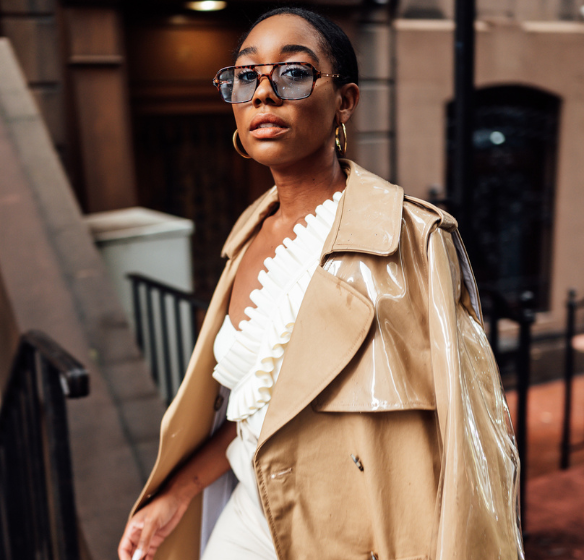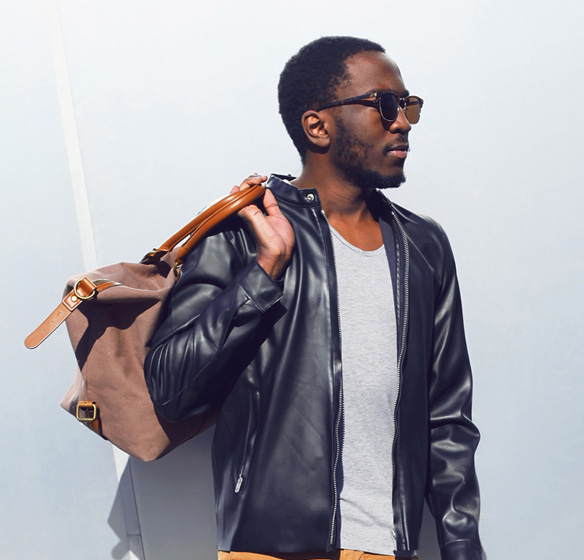Redefining Luxury for Growth
Luxury is poised for continued economic resilience and steady growth. Despite market turbulence, the global luxury market grew 20% in 2022 reaching $1.65 trillion dollars.

Luxury is poised for continued economic resilience and steady growth. Despite market turbulence, the global luxury market grew 20% in 2022 reaching $1.65 trillion dollars. The persistence of the category during times of financial stress, though contrary to expected behavior, proves luxury is more resilient than ever.
Rakuten and Vogue Business partnered to survey 1,200 Vogue and GQ readers to gain a new understanding of today’s luxury landscape. Rakuten President, Kristen Gall, took the stage at Shoptalk last week to share the findings.
Pre-pandemic, luxury was in a comfortable period of growth
Prior to the COVID-19 pandemic, the luxury space was in a period of comfortable, decade long growth.
- Luxury benefited from a bullish global economy that spurred a 7% annual growth rate from the years 2009-2019.
- Affluence from China drove 35% of luxury purchases, solidifying China as an impact market.
- Brands dipped their toes in new categories, like sneakers and street wear, and experimented with label collaborations. This introduced lower price points that allowed for greater accessibility for new segments.
The pandemic decelerated a decade of growth overnight. Retailers were forced to adapt. Reluctant luxury brands finally embraced digital, spurring rapid innovation and accelerating evolution for the category.
Redefining luxury accelerated a new era of growth
Changing times and changing consumer behavior are redefining luxury and pushing brands to rethink every aspect of their business. The move to a digital-centric model democratized luxury by connecting brands to new audiences and opening new apertures for purchase. E-commerce exploded, and drove fundamental shifts in the category that continue to fuel growth and changes to in market strategies:
- Brands began to challenge existing paradigms, to create more inclusion and access. Luxury has long been rooted in exclusivity. This exclusivity helped brands maintain their status, known by all but paradoxically, consumed by a few.
- Curating digital experiences to drive engagement and purchase with today’s luxury buyer. Luxury brands, traditionally, limited online presence, but the pandemic and consumer behavior forced changes. Keeping things seamless, easy, and prestige is the trifecta.
- Pandemic stores closures and inventory challenges caused major shifts in category sales. Luxury skincare and cosmetics exploded. Digital shopping has made buying luxury shoes and handbags more accessible.
In 2022, the market for resell luxury rose to nearly $52B. As the demand for luxury goods continues to surge, resell remains a strong access point for consumers. Consumers value sustainability more than ever before. Rakuten’s research shows 84% of luxury shoppers are willing to pay more for brands that deliver a desired brand image while also demonstrating environmental and social accountability. The secondhand market is an opportunity for luxury retailers to support long term sustainability goals, while supporting their acquisition and loyalty efforts.
Understanding today’s luxury buyer: the ‘always on’ shopper
Luxury shoppers are highly self-motivated and have adopted an ‘always on’ shopping behavior. It’s about getting the best value – a great deal without sacrificing quality and brand preference. These buyers are open to new platforms that provide access to what they want, at the price they want. For brands this means changing where you show up, how you speak and what you offer them.
Here’s a glimpse into what we found about the modern luxury shopper:
- Gen Z has money to spend on luxury. Spend from younger luxury buyers (Gens Y, Z, and Alpha) is growing 3x faster than other generations. However, the spending power of Gen Z, specifically, is on the rise. Their ability to spend on luxury is not tied to income, rather it’s tied to the amount of disposable they have. Gen Z buyers make their first luxury purchase at age 15, three to five years earlier than millennials did.
- Buyers are investing in higher-value items. Consumers are shopping with intention, thinking of luxury pieces as investments, rather than splurges. They’re opting to purchase fewer, but significantly more expensive items. Average order value (AOV) is expected to grow 17% in 2023, compensating for the decrease in units per order.
- Luxury shoppers have redefined their value equation. Seventy-one percent of consumers are funding purchases from personal income. They are looking to be savvy with their investment, yet are intentional with their shopping, opting to purchase quality over quantity.
What You Can (and Should) Do
- Meet customers where they are. Rather than waiting for customers to come to you, meet them where they’re at, so you never miss an opportunity to engage. Consider value and life-stages and create offers that resonate.
- Bridge band and go deeper in new channels. New customers are playing in new spaces. Invest in where your customers are and make sure your acquisition and loyalty strategies are working together.
- Segmentation is the new rubric. It’s no longer about one audience. Not all customers act the same, so why send them the same offers and promotions?
Shoppers use Rakuten for every stage of the buying journey
As luxury becomes more accessible, consumers will turn towards value-based experiences and offers. To win luxury buyers in this era, retailers must have a deep understanding of the factors that drive customers to make a purchase.
Rakuten’s Cash Back program strategically bridges acquisition and loyalty, providing actionable insight that brands can use to get more precise in understanding who to target, and at which rate, to drive specific outcomes. We work with brand partners to design effective affiliate programs and connect them to a premium audience to drive incremental growth.
Get to know more about the sentiment and behaviors of today’s luxury buyer here.


